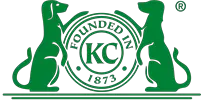Lancashire Heeler History
The Lancashire Heeler is a medium-sized, short-coated, active working terrier, developed from the now extinct Border Collie and the now rare Old English Bulldog. The Lancashire Heeler is believed to be the oldest landrace terrier in the United Kingdom, dating to 500 AD. The Lancashire Heeler was officially recognized in 2008 by the UK Kennel Club, and is recognized as a “native” UK breed.
Time of Origin
1800s
Lancashire Heeler Physical Characteristics
The Lancashire Heeler is a medium-sized, sturdy, muscular, working breed that typically stands between 17 and 19.5 inches tall at the shoulders and weighs between 30 and 60 pounds. They have a lean, athletic look with a rectangular frame. They have a thick, rough coat that is short, hard, and wiry; the coat of a Black and Tan has a solid (not ticked), brindle, or grizzled (black/tan speckled) pattern. They have a docked tail. They have thick, erect ears, dark, almond-shaped eyes, and a straight, blunt muzzle. They have strong, straight front legs, strong, straight hind legs, and well-muscled thighs. They have a flat, broad, wedge shaped head.
Eye Colors
Brown
Nose Colors
Unknown
Coat Colors
Unknown
Height Range
Male Height Range: 10 – 12 inches
Female Height Range: 8 – 10 inches
Weight Range
Male Weight Range: 13 – 18 lbs
Female Weight Range: 13 – 18 lbs
Lancashire Heeler Health
Description of breed health.
Lifespan
12-15 yrs
Lancashire Heeler Health Concerns
Cataracts, Lens Luxation, Patellar Luxation
Lancashire Heeler Temperament and Behaviour
The Lancashire Heeler is a lively and fun-loving breed that is easy to train. They are extremely smart, but are also very independent, which can make them difficult to train. They are highly energetic and will need regular exercise, but their love of activity makes them a great candidate for doggy sports. The love to run and jump, so be sure they have plenty of room to run outside.
Lancashire Heeler Activity Requirements
The Lancashire Heeler is a playful, high-energy, small breed of dog that originated in England. They are intelligent, devoted, and loyal, making them ideal companions. While they are not as high strung as some other breeds, the Lancashire Heeler does need a good amount of exercise and attention. They are best suited for homes with yards and lots of space where they can play and run. Daily walks or jogs are also great ways to burn off some of their energy. The Lancashire Heeler is not a hyperactive or high-strung dog. They are intelligent, willing, and eager to please, which makes them quite easy to train. While they are not recommended for first-time dog owners, they can certainly be a good match for experienced owners.
Miles Per Day
Unknown
Activity Per Day
Unknown
Daily Food
1.3 cups
Kennel Club Recognition

American Kennel Club
Recognized by the American Kennel Club
Lancashire Heeler is part of the Miscellaneous Class group.
Visit the American Kennel Club website.

The Kennel Club
Recognized by The Kennel Club
Lancashire Heeler is part of the Pastoral group.
Visit the Kennel Club website.

Australian National Kennel Council
Not Recognized
Lancashire Heeler is part of the Unclassified group.
Visit the Australian National Kennel Council website.

Canadian Kennel Club
Recognized by the Canadian Kennel Club
Lancashire Heeler is part of the Herding group.
Visit the Canadian Kennel Club website.